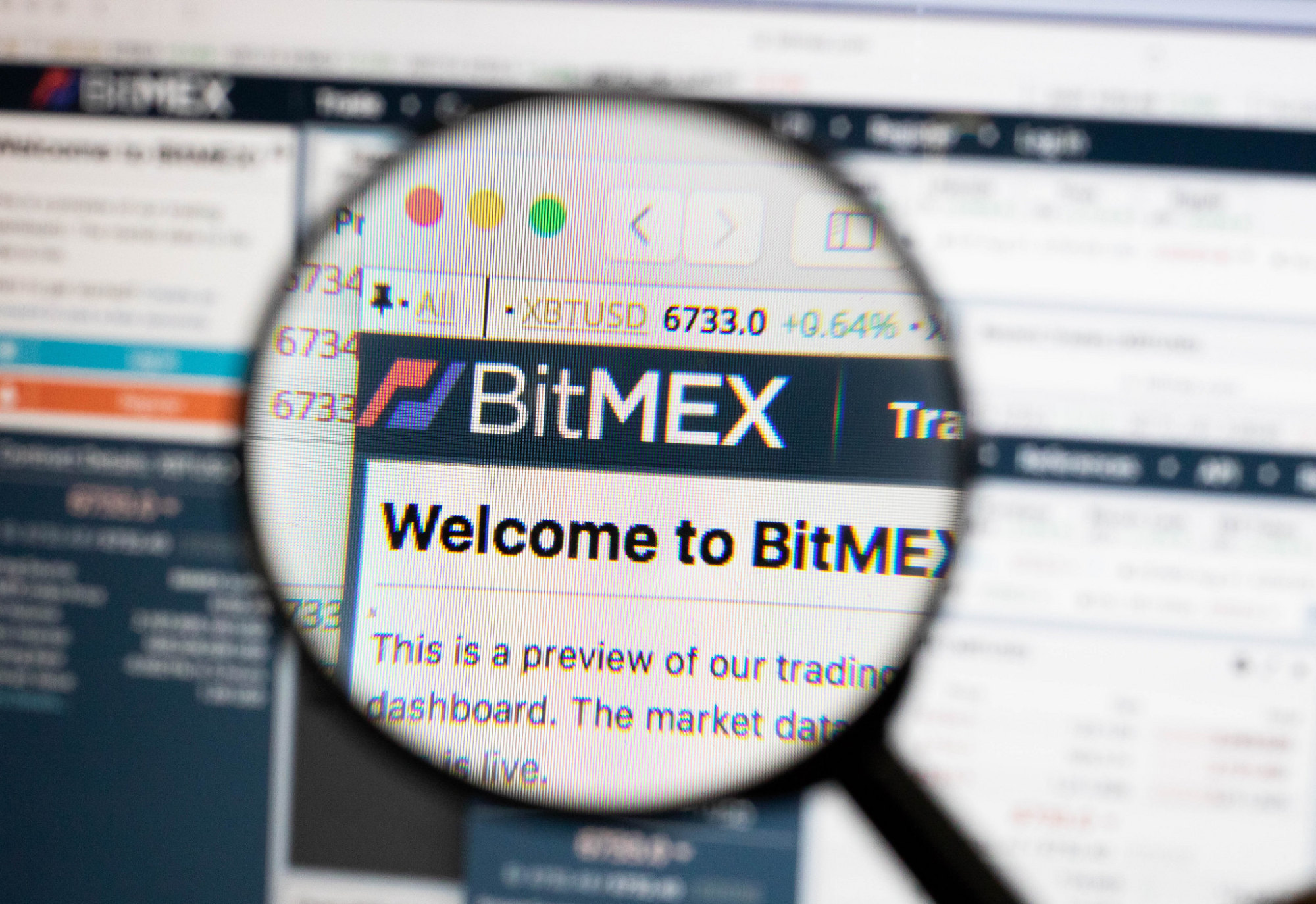
A ‘crypto spring’? Asia’s digital-asset champions hold out hope for a rebound
- Asian cryptocurrency firms that survived last year’s industry meltdown are cautiously plotting a recovery from what was dubbed ‘crypto winter’
- Many insist digital currencies are here to stay, with increased regulation – even as some academics warn that ‘crypto isn’t the future’
“We acknowledge the waning confidence in the crypto space, but our outlook for 2023 remains bullish,” Liu told This Week in Asia.
Liu pitches a story of optimism – not unexpected for someone whose firm has a trading volume of US$7 billion, more than 380,000 customers, and close to 150 staff.
But he is not alone. While the world keenly watches the free fall of cryptocurrencies, the firms that have survived are cautiously plotting for a recovery.
At Singapore’s Gillman Barracks – a cluster of international art galleries in the southern part of the island state – a recent exhibition sought to reaffirm the value of NFTs.
The exhibition, called “Proof of Concept”, spanned an expansive two-room space and brought together some of the most influential names in the digital and crypto art world.
“The intrinsic value of NFTs has recently been challenged,” said Liu, whose firm sponsored the event.
Hong Kong’s crypto U-turn injects optimism into a tumultuous 2022
But the exhibition “is a testament to how a crypto project can bring value to the space and the public”, he added.
Organisers expect the 10-day exhibition, which has attracted thousands of wide-eyed visitors, to be the most influential digital media and crypto art exhibition in Singapore this year.
But not everyone is as enthusiastic after a year of scandals and brutal losses for exchanges and investors – big and small – that cascaded out across many fintech start-ups based around crypto, causing massive job losses.
Crypto is not the future. Technology is the future. A digital world is the future
“Crypto is not the future. Technology is the future. A digital world is the future,” said Antonio Fatas, a professor of economics at business school Insead.
Bitcoin, the leading cryptocurrency, has recovered some of its value since FTX went under, trading last week at around US$22,000, but still well below its peak of US$68,000 in 2021.
Genesis, a cryptocurrency lender that operates in New York, London and Singapore, last week filed for bankruptcy in the US, in what was described as a “mega” case that listed more than 100,000 creditors.
FTX fallout continues to spread, hitting Hong Kong and US exchanges
Siam Commercial Bank, the country’s oldest lender partly owned by the Thai king, has shelved plans to acquire Bitkub, another cryptocurrency exchange.
Trust in short supply
Last year brought unrelenting misery in the cryptocurrency space.
The value of cryptocurrencies plummeted as a result. But more than that, the meltdown has also highlighted the dangers of the industry.
“It has been a wake-up call,” said Fatas, the economics professor based in Singapore. Questions have been raised about how Bankman-Fried – a charismatic leader seen as guru in crypto circles – managed to use allegedly fraudulent strategies to inflate his firm, raising doubts about other businesses driven by high-profile personalities.

“If he did that, why would we trust those who are still around?” Fatas asked.
Indeed, as the list of crypto-related casualties grows, some retail investors have started distancing themselves as sceptics become more vocal.
How will things play out in the coming months? Fatas said he felt that recent developments would not spell the end of the cryptocurrency industry – largely because “there are enough crypto fans that will not accept failure” – but he said it looked more marginal than before.
What the bitcoin bloodbath reveals about the cryptocurrency market
“Bitcoin has failed as a form of money and payments. Now cryptocurrencies are not seen as a regular investment asset,” he said, adding that he expected “a few more” failures this year.
Lawrence Loh, a business professor at the National University of Singapore (NUS), described the past year as “too eventful” and said that 2023 would instead be a “critical, watershed year” likely punctuated by an acceleration in litigation, legislation and licensing.
He said the downward trend would persist – though there was some hope that the market would bottom out this year.
A crypto turning point?
Yet crypto’s current troubles could present an opportunity for firms to reinvent themselves, and for jurisdictions to step up measures to prevent similar crises from happening again.
Some firms view the coming year as a possible turning point, and spoke of Asia as a blossoming region with huge potential for the development of cryptocurrencies.
Coinhako’s Liu noted that investors have admittedly moved away from risky digital assets, attributing the shift to “increasing macroeconomic headwinds and a few bad actors” in the space, without naming any.
He believes that Asia has been a focal point for cryptocurrencies and other digital assets, and firms in the region would continue to be resilient.

“Over the decade, Asia has been a key growth driver in the crypto space and many successful and innovative projects were created in Asia,” he said, citing Bitmex, one of the first cryptocurrency derivative exchanges founded in Hong Kong in 2014, as an example. “As one of the longest-standing crypto institutions in Asia, Coinhako is committed to steering through the cyclical conditions of the market.”
Cryptocurrency exchange OKX, which has operations in Singapore, also started hiring and expanding globally despite bearish conditions. A spokesman said the exchange was “very well-positioned to stand the test of time”.
But some firms also aired concerns that the meltdown could have long-lasting implications.
Cryptocurrency firm Amber scrambles to slash costs to survive: source
“Current market conditions are among the toughest that Amber Group has faced so far,” said Annabelle Huang, managing partner of the cryptocurrency firm. The group reportedly cut hundreds of staff in December.
Even when the industry eventually recovers, there will not be the “excesses and ostentation” witnessed previously, she said.
“Now is the time to uproot the weeds of the industry so that only serious players who are truly committed to the cause will prevail and succeed in materialising the future of crypto finance,” Huang added. “This is more than just a bright spot. This is the light at the end of the tunnel.”
I believe that out of last year’s crypto winter will eventually emerge a crypto spring
For RockX, a cryptocurrency firm focused on “staking” – a way of earning rewards for holding certain digital assets – the damage that has been dealt to the industry has been “almost immeasurable”. Founder Chen Zhuling said it has set the sector back and there was now growing doubt over the legitimacy of cryptocurrencies.
Yet the firm grew threefold last year to about 40 workers across Asia.
“The [FTX fallout] undoubtedly casts a shadow on the crypto industry – one that we all, collectively, will need to correct,” said Eddie Hui, chief operating officer at digital asset platform MetaComp.
“I believe that out of last year’s crypto winter will eventually emerge a crypto spring, one where the most resilient of players will be well positioned to grow,” he said.
Analysts expect the downturn to present opportunities for those firms that do survive.
Blockchain gets religion? Taiwan temple mints NFTs of local sea goddess
“Ultimately there will be a shift in focus, as funding, talent, and attention flow to more resilient business models,” said James Gordon, a partner at Oliver Wyman’s digital and financial services arm. “Those that can’t adapt will die, but those that can have the chance to thrive.”
The industry’s focus should now be on building services and products that tap into underlying technology instead of encouraging speculative investment and risk-taking, he added.
Whether firms in Asia are resilient to further shocks would depend on their offerings.
Those that provide infrastructure and utility – such as the facilitation of cross-border payments – are well-placed to navigate the downturn, Gordon said, while others that want to cash in on speculative investments may suffer.
Regulation incoming
The collapse of FTX in November has prompted governments and regulators around the world to think about how to better govern the rapidly changing space.
“Investment in crypto is the equivalent of a casino and should be regulated as such,” said Insead economics professor Fatas.
Gordon said digital assets have introduced a wave of risks that are novel and often poorly understood by investors.
“How worrying these risks are depends on how quickly the ecosystem matures, how regulators adapt and develop frameworks to protect participants, and how supervision and enforcement is applied,” he said. “The negative paradigm is that the ecosystem repeats the mistakes of traditional markets and innovation outstrips safeguards, leading to a complex risk landscape and further crises.”
For Asia, this is the time for governments to make a mark ... You cannot ignore digital assets going forward
Legislation will be the main theme for 2023, experts say.
For a start, the FTX collapse, among other things, has exerted greater pressure on governments and regulators to up their ante.
“You cannot just wait for another FTX to happen,” said Loh, the NUS professor.
Across Asia, governments have taken varying measures in dealing with digital assets.

In Singapore, which earlier positioned itself as a global cryptocurrency hub, tougher restrictions are expected following the spate of meltdowns last year. But its regulator has approached the issue by engaging with industry players.
But regulators should engage the industry and “not throw the baby out with the bath water”, Loh said.
Davos 2023: Cryptocurrency regulation ‘needed to tackle financial crimes’
“For Asia, this is the time for governments to make a mark. If you get your policy and regulation right, you can have digital assets as part of your broader financial [offerings],” he said. “You cannot ignore digital assets going forward.”
For Terence, a 35-year-old Singaporean, who lost the bulk of his life savings of S$33,000 (US$25,000) during the cryptocurrency crash last year, it has been a cruel learning curve.
“I am less naive now in crypto,” said the marketing executive, who only gave one name.
But in a sign of the enduring appeal of making money from assets with no intrinsic value he says he continues to trade crypto, albeit in small quantities, looking for a margin as the price fluctuates. “Crypto is around to stay,” he said.

